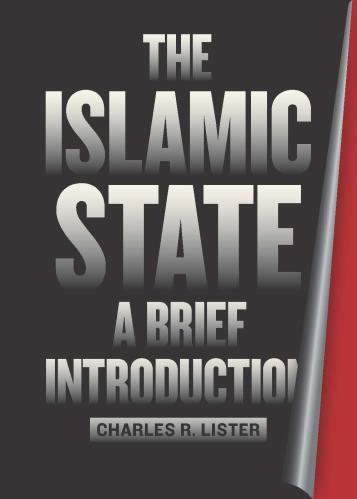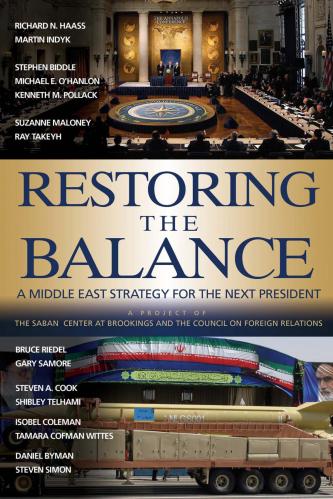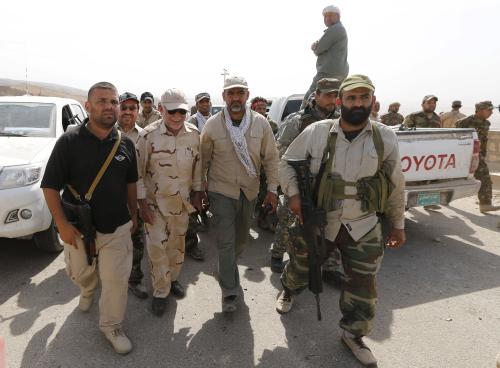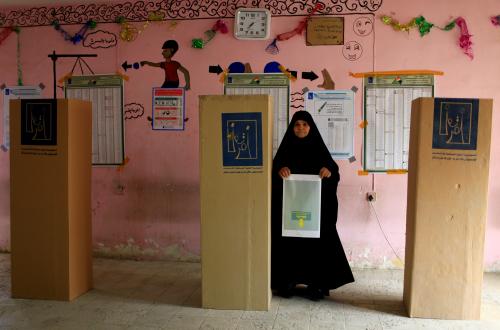Content from the Brookings Doha Center is now archived. In September 2021, after 14 years of impactful partnership, Brookings and the Brookings Doha Center announced that they were ending their affiliation. The Brookings Doha Center is now the Middle East Council on Global Affairs, a separate public policy institution based in Qatar.
The operation to liberate Mosul will almost certainly bring an end to the Islamic State’s territorial control in Iraq and will be the death knell of the so-called “Caliphate.” But what comes next? Iraq lacks the resources and the capacity to rebuild the towns and cities that have been destroyed since the anti-ISIS campaign was launched, and there are no guarantees the international community will fill that gap.
Iraq is suffering the consequences of corruption, sectarianism, and dysfunctional governance—but those aren’t new. To compound matters for the Iraqi state, and its people, it also has to contend with the rise of Shiite militia groups.
Understanding the problem
Shiite militias, who function as part of an umbrella organization of disparate militia groups known as the Hash’d al-Shaabi (Popular Mobilization Force, or PMF) rose to prominence because of their battlefield successes against ISIS after the collapse of the Iraqi army in 2014. More than 100,000 Shiite fighters (and some Arab Sunnis) mobilized to fill the security vacuum—Grand Ayatollah Sistani helped, issuing a religious edict calling on all able-bodied Iraqis to defend their country.
Throughout the world, violent non-state actors often challenge and weaken states’ sovereignty. ISIS even declared the end of the nation-state system established in the Middle East a century ago. But dealing with jihadis will be far more straightforward than Iraq’s Shiite militias. The most powerful of them were formed in opposition to the former Baath regime in the 1980s and 1990s, others after the chaos and vacuum that followed the 2003 war. They have significant cultural, religious, and political overlap with the local Shiite population and also overlap with the Iraqi state. Some Shiite militia heads have even held ministerial posts, and their fighters have served—and continue to serve—in the army and police force.
These heavily armed, resource-rich actors function autonomously and have challenged the state on multiple occasions. They do not envisage a resurrection of the Iraqi state, since a stronger state—that holds a monopoly over the use of force, is the principal service provider, and constrains patrimonial networks based on sect and tribe—weakens many of the militias significantly.
The narratives of victimhood they deploy (based on the threat from Arab Sunni militants and oppression of Shiites by the Baath regime), as well as Shiite religious symbolism, is central to their identity. It means it is difficult for them to become pluralist actors that can build long-term political alliances with actors that do not adhere to their ideology and brand of politics, lest it undermine the narrative that underpins their existence.
These political, social, and religious characteristics of the militias—together with their power to reject or entrench within the state—make the challenge of dealing with them even greater. Defeating them militarily will be difficult if not impossible and, in any case, brings more costs than benefits to an already weak Iraqi state.
What to do
Yet Iraq cannot survive if it enables the rule of the militias, some of which are complicit in sectarian atrocities. Conceding power to unaccountable militias will sustain the space for violence and extremism to flourish, and will almost certainly enable ISIS to resurrect itself in the future.
There are options available to policymakers in Iraq and the United States to ensure that recent gains made against ISIS do not become long-term costs. Whether in Iraq or other countries around the world—particularly in Latin America and Africa—policymakers sometimes attempt to integrate violent non-state actors like militias, warlords, and paramilitary forces (all of which are used interchangeably to refer to violent non-state actors that function autonomously of the state) into the state. But this is often outright implausible.
The process should be re-defined so that it involves not asking militias to give up their guns and power, but rather incorporating them into a social dialogue and contract that aims to secure their stake in Iraq and better define their role. As it stands, Iraq’s Shiite militias operate in a social and legal lacuna, since their precise relationship with the state and society remains fluid and ill-defined. This breeds uncertainty and, therefore, unwillingness to engage in dialogue and consensus-based politics.
To address this, the authority that militia groups have must be better defined: Where does the authority of militias begin and where does it end? Defining these legal parameters—but also, more importantly, the socio-cultural nexus between militias, the state, and society—can help breed a culture of accountability. Civilians, contrary to conventional wisdom, have significant agency in conflict zones and can nudge armed groups into respecting human rights and adopting basic norms such as good conduct and responsibility. Shiite militias are heavily dependent on popular support and are much more likely to interact with local communities than Iraqi political elites, external actors such as government officials, NGOs, and human rights groups. The United States can help in this respect by providing financial support, training, and education to genuine and legitimate civil-society actors as part of the effort to enable the space for stabilization efforts.
There are a number of militias, however, that may not entertain these proposals. Iraq’s most powerful militias are unlikely to accept proposals that limit their autonomy or limit the powers of their paymasters in Iran, which gives them cash and weapons (and which will attempt to exploit divisions to sustain its hold on the country). Yet these groups are weaker than they appear. They are up against a population that could soon be discontented with militia rule, as it was after 2008 when sectarian conflict abated and militias established a mob-like culture.
Beyond these Iran-aligned groups, there are powerful militias aligned with the government in Baghdad—they are nationalistic forces that vehemently oppose the dominance of Iranian-backed militias and Iranian influence more generally. There are also militias that answer to the religious establishment of Grand Ayatollah Sistani, who commands respect across the ethnic and religious spectrum and has historically opposed Iranian encroachment into Iraqi affairs. Moreover, he has openly criticized Iranian-backed Shiite militias for their atrocities.
At times, militias have opted for conciliatory and non-violent forms of contention, such as by way of the ballot box—but this has usually taken place when the Iraqi state was stronger. Militias must be forced to choose between an institutionalization process that acknowledges their existence and an armed confrontation that they cannot win in the long run.
In the event of the second route, the United States must leverage the divisions and jockeying among the PMF and the Shiite political establishment. It must engage with state-aligned militias more intensively and consider providing them with increased financial and political support.
There is also an opportunity to increase support for Prime Minister Haider al-Abadi, who constitutes the single most serious threat to militia rule. He stands between them and the national budget, and stands between them and pro-Iran members of Iraq’s Shiite political class (including controversial and authoritarian former prime-minister, Nouri al-Maliki), who have attempted to unseat him from power over the past two-years.
The Iraqi state still holds its imprimatur of international norms of sovereignty and remains the only actor capable of constructing and shaping the country’s constitutional and legal system. In the past, even hardline militias have sought integration into the political process and have relied on that to acquire legitimacy and credibility. This should be welcomed once again, but only if it is the Iraqi state and its institutions that define the rules of the game, rather than the other way around.
The Brookings Institution is committed to quality, independence, and impact.
We are supported by a diverse array of funders. In line with our values and policies, each Brookings publication represents the sole views of its author(s).











Commentary
How to resolve Iraq’s Shiite militia problem
October 28, 2016